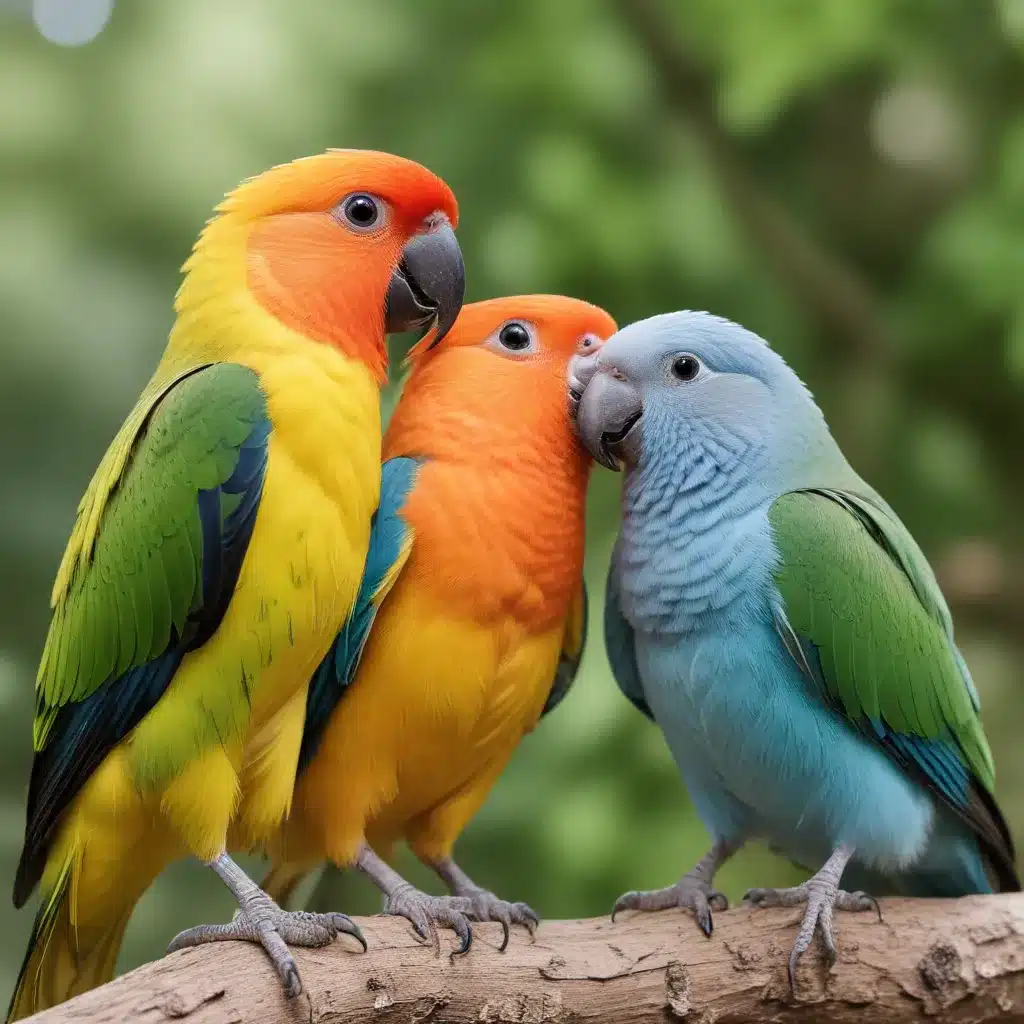
As an experienced avian caretaker, I’ve had the privilege of working with a wide variety of bird species and helping countless pet owners ensure their feathered friends are happy, healthy, and well-adjusted. One of the most crucial aspects of avian care is proper socialization – a topic that is often overlooked but can have a profound impact on a bird’s overall well-being and behavior.
The Importance of Socialization for Birds
Socialization is not just about teaching your bird to be friendly and comfortable around humans; it’s a fundamental part of their behavioral development and psychological well-being. In the wild, birds live in complex social structures, relying on their flock mates for a sense of security, communication, and even survival. When a bird is removed from this natural environment and brought into a human home, it’s essential to provide them with opportunities to engage in social interactions and build confidence.
Without proper socialization, birds can develop a range of behavioral issues, from aggression and anxiety to feather plucking and other self-destructive habits. A well-socialized bird, on the other hand, is more likely to be calm, curious, and eager to interact with both their human caretakers and any other pets in the household.
Socialization Techniques
Effective socialization for birds involves a combination of positive reinforcement training and interactive playtime.
Positive Reinforcement Training
Positive reinforcement is a powerful tool for building trust and confidence in your bird. By rewarding desired behaviors with treats or praise, you can encourage your feathered friend to become more comfortable and engaged during interactions. Start by teaching simple commands like “step up” or “come” and gradually work your way up to more complex tricks and behaviors.
Interactive Playtime
In addition to training, regular interactive playtime is crucial for socializing your bird. Set aside time each day to engage your bird in activities that stimulate their natural curiosity and exploration instincts. This could include introducing new toys, hiding treats for them to find, or even playing simple games like peek-a-boo.
Avian Social Environments
Creating an enriching and stimulating social environment for your bird is essential for their overall well-being. This involves both the physical setup of your home as well as the dynamics within your household.
Enriching the Home Environment
Providing your bird with a variety of perches, toys, and other enrichment items can help them feel more secure and confident in their surroundings. Rotate these items regularly to keep your bird engaged and prevent boredom. It’s also important to consider the flock dynamics within your home, ensuring that any other pets or family members are introduced and integrated in a safe and positive way.
Introducing New Stimuli
When it comes to introducing new people, objects, or environments to your bird, it’s crucial to do so gradually and with careful monitoring. Sudden changes or overwhelming stimuli can cause stress and anxiety, potentially leading to behavioral issues. Start with short, positive interactions and gradually increase the exposure as your bird becomes more comfortable.
Fostering Interspecies Bonding
Building strong, trusting relationships between your bird and the various members of your household is a key aspect of successful socialization.
Interactions with Humans
Establishing a bond of trust and understanding between your bird and their human caretakers is essential. Spend time each day engaging in positive interactions, such as gentle petting, shared activities, and rewarding desired behaviors. By demonstrating that humans are a source of comfort and safety, you can help your bird become more confident and comfortable in their presence.
Relationships with Other Pets
If you have other pets in your home, it’s important to carefully assess their compatibility with your bird and introduce them in a controlled, supervised environment. Proper introductions and gradual exposure can help foster positive interspecies relationships, allowing your bird to feel secure and at ease around their non-avian housemates.
Addressing Socialization Challenges
Even with the best efforts, some birds may still struggle with socialization and exhibit problematic behaviors. It’s important to identify the root causes of these issues and address them with patience and professional guidance.
Identifying Antisocial Behaviors
Aggressive or anxious behaviors, such as biting, feather plucking, or excessive vocalizations, can be signs that your bird is struggling with socialization. It’s crucial to address these issues promptly, as they can escalate and become more entrenched over time.
Rehabilitation Approaches
If your bird is exhibiting antisocial behaviors, seek the guidance of an experienced avian veterinarian or a certified bird behavior specialist. They can help you develop a customized rehabilitation plan that may involve behavior modification techniques, environmental enrichment, and, in some cases, medication. With the right approach and patience, many birds can overcome their socialization challenges and become confident, well-adjusted companions.
Ensuring proper socialization for your bird is a lifelong journey, but the rewards are immeasurable. By providing your feathered friend with a nurturing, enriching environment and opportunities to engage in positive social interactions, you can help them thrive and develop into a well-adjusted, confident, and loving companion. Remember, the more you socialize your bird, the more confidence they will have – and that’s the key to a happy, healthy, and harmonious relationship.
For more information on avian care and socialization, be sure to check out the resources at Mika Birds Farm. Their team of experienced avian experts is dedicated to helping pet owners like you ensure their birds receive the best possible care and support.


